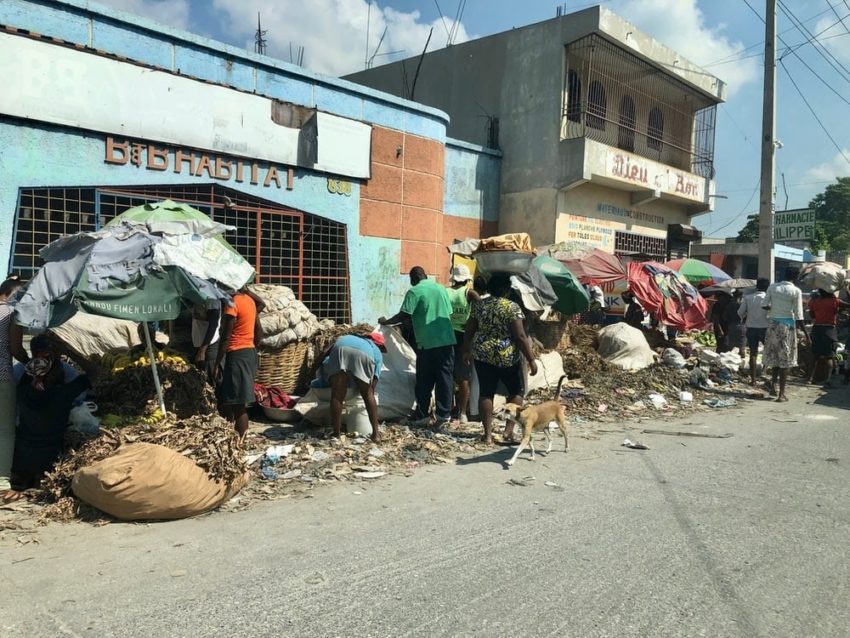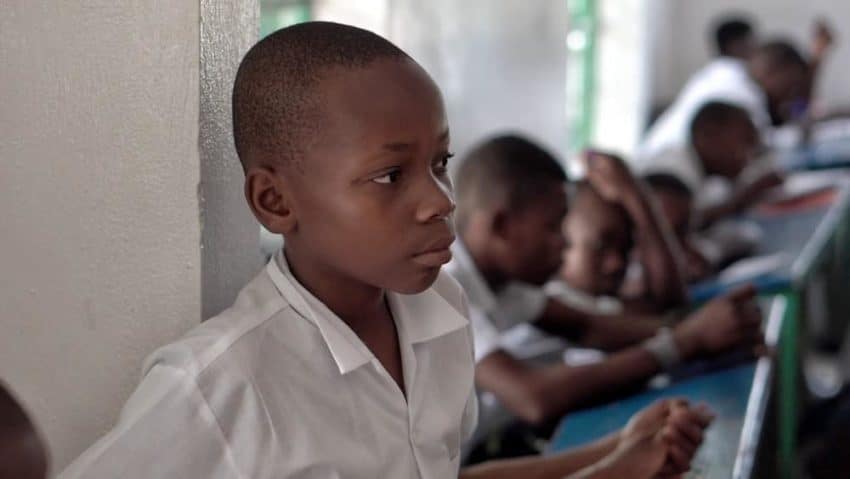Education in Haiti: An Overview
Updated: June 19, 2024

The education system in Haiti is in dire need of assistance as Haiti is the poorest country in the Western Hemisphere. The Haiti educational system is ranked 177th out of 186 globally in terms of national spending on education.
This less-than-optimal fact means most private schools are funded by American and Canadian missions, which end up educating about 90% of the students in Haiti. But, for the students who cannot afford to attend private institutions, it means that they are usually at a loss since the public education system is lacking in many respects.
Before we dive deeper into the schooling in Haiti, we will touch on some key facts that help to describe the overall socioeconomic situation in Haiti. Then, we will review what there is to know about the state of education in Haiti today, and be able to understand why it is the case.

General Facts About Haiti
Haiti is the poorest country in the Western Hemisphere and lacks many government-assisted programs, such as: food stamps, public healthcare, public housing, emergency food and shelter programs, etc.
Haiti education statistics show that 1 in 5 children pass away before the age of 6, and over 400,000 children are orphans. The bulk of the population exists in dire poverty.
With the various forms of political, environmental, social, and economic instability, quality education becomes a challenge to attain.
Educational Facts About Haiti
The Haitian education system is split between public and private establishments. More than 80% of primary schools are private, and it has resulted in a great divide between the quality of education that students receive in the different types of institutions.
For students who attend public institutions, there are many instances in which the infrastructure simply doesn’t exist for a classroom setting. Instead, in some regions, students attend schools in houses, outside, or in churches — if at all.
When it comes to primary schools, there’s a 57% enrollment rate, whereas secondary schools enroll just 20% of eligible-age students. According to data from The World Bank, the Haitian literacy rate for students ages 15-24 is 83% (as of 2016). Yet, roughly 50% of adults are illiterate.
Past Turmoil and Current Crises
There are supply and demand issues when it comes to education that have been exacerbated by past and present crises.
For starters, in 2010, Haiti suffered from a massive earthquake that claimed the lives of hundreds of thousands of people (estimates hover between 200,000 to 300,000 people). The country, which was already experiencing a lack of infrastructure, was massively strained by the earthquake and a series of tropical storms.
Furthermore, Haiti’s president was assassinated on July 7, 2021, another earthquake struck the country, and the COVID-19 pandemic is creating more struggle.
Since four out of five schools are private in the Caribbean nation, most students are unable to afford to return to school as the pandemic has further worsened economic conditions in the country. The education ministry’s budget for education has diminished to just 10%, from a previous 16%.
Along with the inability to afford education on behalf of many students, teachers are not receiving their salary for teaching. This is causing many teachers to be forced to leave the profession, thereby further reducing the already dismal supply of teachers.

Education is Necessary
Education is often considered to be a primary factor and catalyst for change that has the power to affect one’s economic mobility. However, in Haiti, the number of students who cannot afford education (since most of the institutions are private), means that the number of people remaining jobless and in poverty becomes cyclic.
78% of the population lives on less than $2 a day, making it impossible to pay for any private school tuition fees. Although the government is making strides and trying to focus on education, there is a lack of funding that thwarts the efforts. Additionally, it takes time for teacher training and capacity building to reach its peak.
For students who do attend public schools, the education system is not equal for all. Most Haitian schools are overcrowded, understaffed, and lack the required resources that are necessary to learn.
University of the People Provides Hope to Haiti
At University of the People, we whole-heartedly believe that education is a human right. As such, we operate our institution entirely online and with the help of renowned instructors who dedicate their time to develop leading degree programs.
With low overhead costs, we are able to provide students from around the world access to higher education that is tuition-free.
After the 2010 Haitian earthquake, 28 out of 32 universities were obliterated, which not only affected students at the time, but would have a lasting effect on future generations’ ability to attend institutions of higher education. University of the People responded by offering 250 full scholarships to students in the country to attend our institution without having to pay any fees at all.
After the recent earthquake in 2021, University of the People provided 250 full scholarships to students in Haiti to cover the relatively low fees associated with online attendance. We will continue to support the right to education for people of all nations and territories.
The Bottom Line
The importance of education must be considered paramount to improve Haiti’s social, economic, and political turmoil. However, with a lack of funds, teachers, and infrastructure, there are many challenges that the region faces. Since a majority of the institutions are private, the lack of a robust public education system continues to deny many children the access to education that they should rightfully receive.
University of the People believes in providing accessible, affordable, and quality higher education to students around the world, no matter their socioeconomic situation or region of residence. To find out more about our program offerings, learn more here.
